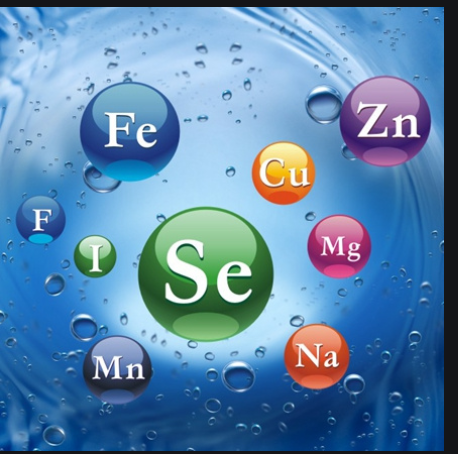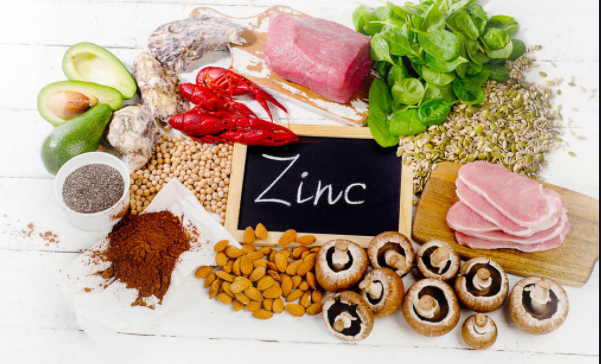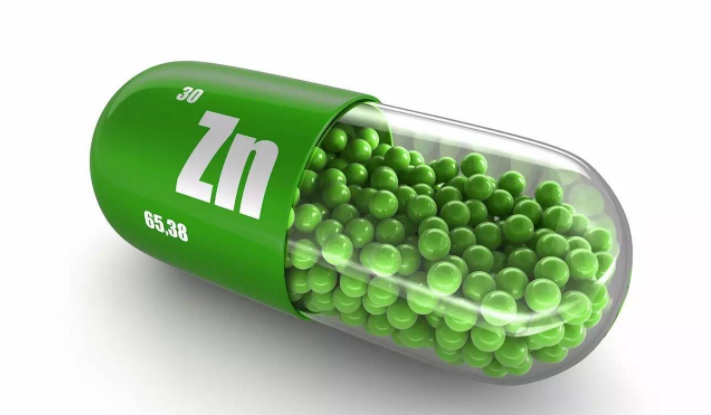









发布日期:2020-10-28
制定者:
出处:
 立即收藏
立即收藏
What is Zinc?
Zinc is a mineral. It is called an "essential trace element" because very small amounts of zinc are necessary for human health. Since the human body does not store excess zinc, it must be consumed regularly as part of the diet. Common dietary sources of zinc include red meat, poultry, and fish. Zinc deficiency can cause short stature, reduced ability to taste food, and the inability of testes and ovaries to function properly.
How does it work?
Zinc is needed for the proper growth and maintenance of the human body. It is found in several systems and biological reactions, and it is needed for immune function, wound healing, blood clotting, thyroid function, and much more. Meats, seafood, dairy products, nuts, legumes, and whole grains offer relatively high levels of zinc. Zinc deficiency is not uncommon worldwide. Symptoms include slowed growth, low insulin levels, loss of appetite, irritability, generalized hair loss, rough and dry skin, slow wound healing, poor sense of taste and smell, diarrhea, and nausea. Moderate zinc deficiency is associated with disorders of the intestine which interfere with food absorption (malabsorption syndromes), alcoholism, chronic kidney failure.Zinc plays a key role in maintaining vision, and it is present in high concentrations in the eye. Zinc deficiency can alter vision, and severe deficiency can cause changes in the retina (the back of the eye where an image is focused).Zinc is taken by mouth for the treatment and prevention of zinc deficiency and its consequences, including stunted growth and acute diarrhea in children, slow wound healing, and Wilson's disease.It is also used for boosting the immune system, improving health in zinc deficient infants and children, for treating the common cold and recurrent ear infections, the flu, upper respiratory tract infections, preventing and treating lower respiratory infections, swine flu, bladder infections, ringing in the ears.Some athletes use zinc by mouth for improving athletic performance and strength.Note that many zinc products also contain another metal called cadmium. This is because zinc and cadmium are chemically similar.Exposure to high levels of cadmium over a long time can lead to kidney failure. The concentration of cadmium in zinc-containing supplements can vary as much as 37-fold. Look for zinc-gluconate products. Zinc gluconate consistently contains the lowest cadmium levels.
Nutrient Metabolism: Zinc is a constituent of dozen enzymes involved in metabolism and digestion , including healthy storage and metabolism of carbohydrates. It also plays a role in the normal absorption of the B vitamins.
Immune Support: Zinc is fundamental in supporting the body's defense system. It promotes healthy neutrophils, natural killer cells, antibody production, and gene regulation within lymphocytes*.
Zinc is involved in many basic cellular functions including DNA replication, RNA transcription, cell division and activation.
Tissue Development and Repair: Zinc plays an important role in healthy tissue development and collagen formation, It is crucial for healthy fetal development*.
Brain Development: Zinc is an important factor in the metabolism of neurotransmitters, prostaglandins, and for maintaining brain structure and function*. Studies using zinc for ADHD have taken place in the Middle East where zinc deficiency is relatively common compared to Western countries.
Zinc deficiency and Attention deficit-hyperactivity disorder (ADHD).
There is evidence that children with ADHD might have lower blood levels of zinc than children without ADHD. A study in the Journal of Child and Adolescent Psychopharmacology, though, did show a link between zinc levels and inattention in children.
There is also evidence that people with ADHD who have lower zinc levels might not respond well enough to prescription medications for ADHD (stimulants). Thus, zinc supplements are of interest for people with ADHD. Taking zinc by mouth along with medicine for ADHD might slightly improve hyperactivity, impulsiveness, and socialization problems in some children with ADHD.
But zinc doesn't seem to improve attention span. Most studies using zinc for ADHD have taken place in the Middle East, where zinc deficiency is more common than in Western countries. One small study shows that taking zinc alone or as add-on therapy to prescription ADHD medication does not consistently improve symptoms of ADHD. But it does seem to lower the optimal dose of ADHD medication that is needed.
The safe dome of Zinc Supplement
When taken by mouth: Zinc is LIKELY SAFE for most adults when taken by mouth in amounts not larger than 40 mg daily. Routine zinc supplementation is not recommended without the advice of a healthcare professional. In some people, zinc might cause nausea, vomiting, diarrhea, metallic taste, kidney and stomach damage, and other side effects.Taking high amounts of zinc is LIKELY UNSAFE. High doses above the recommended amounts might cause fever, coughing, stomach pain, fatigue, and many other problems. Taking more than 100 mg of supplemental zinc daily or taking supplemental zincfor 10 or more years doubles the risk of developing prostate cancer.
什么是锌?

锌是一种矿物质,有“必需微量元素”之称,这是因为少量的微量元素有益于人体健康。由于人体不会储存过量的锌,所以我们需要定期食用含锌的食物来维持体内的锌元素平衡。富含锌的食物多包括红肉(牛肉羊肉等)、家禽肉和鱼类。锌元素的缺失会导致身材矮小,味觉下降,睾丸和卵巢功能障碍。
人体中的锌元素所发挥的作用

锌是人体正常生长和所必需的微量元素,参与多种体内系统和生物反应,并且在免疫功能、伤口愈合、血液凝固、甲状腺功能等方面都发挥着重要的作用。肉类、海鲜、奶制品、坚果、豆类和全谷类食物的锌含量相对较高。在全世界范围内,人体体内锌缺失是一种普遍现象。锌缺失的症状主要包括儿童生长缓慢、胰岛素水平偏低、食欲不振、易怒、全身脱发、皮肤粗糙干燥、伤口愈合缓慢、味觉和嗅觉差、腹泻等。 中度缺锌症状还表现为肠功能紊乱,从而造成人体吸收不良、酒精中毒、慢性肾衰竭等疾病。因为人体眼中的锌元素含量很高,所以锌元素对于维持视力也是必不可少的,严重的锌缺失会引起视网膜(眼睛后部图像聚焦的地方)的变化。口服锌是为了预防和治疗缺锌给人体所带来的危害,包括儿童发育迟缓和急性腹泻,伤口愈合慢和威尔逊氏病。除此之外,锌还可以增强免疫系统,促进缺锌婴幼儿的健康,并且用于治疗普通感冒及复发性耳部感染、流感、上呼吸道感染,预防和治疗下呼吸道感染,猪流感,膀胱感染,耳鸣。一些运动员也经常利用锌来增强肌肉力量,提高比赛效率。需要注意的是,许多锌产品中也含有镉元素。这是因为锌和镉在化学成分上是相似的,但如果长期食用高浓度镉会导致肾衰竭。一般的锌补剂中的镉浓度高达37倍之多,所以最好的选择镉含量最低的葡萄糖酸锌补剂。
锌所参与的人体活动
锌元素被称之为“生命之花”,在众多矿物质营养中也是最为重要的那一类,人体的免疫、发育、生殖、代谢、内分泌等等系统都与锌元素密切相关。
营养代谢: 锌是十几种酶的组成部分,参与人体的新陈代谢和消化,其中包括碳水化合物的储蓄和代谢。除此之外,锌在维生素B的吸收中发挥着重要作用。
增强免疫力:人体的防御系统也离不开锌元素,它能够促进人体产生健康的中性粒细胞、自然杀伤细胞和抗体。锌参与多种基本的细胞功能,包括DNA复制、RNA转录、细胞分裂和活化。
人体组织的发育和修复:锌能够促进健康的人体组织的发育和胶原蛋白的形成,其中包括组织呼吸所必需的酶。因此,锌元素对胎儿的健康成长至关重要。
大脑发展:锌是神经递质、前列腺素和维持大脑结构和功能的重要代谢因子。与西方国家相比,中东地区的人们锌缺失较为普遍,所以该地区多利用锌来治疗多动症。
锌元素的缺失与多动症

有研究表明,患有多动症的儿童体内的锌含量低于正常儿童的水平,发表在《儿童与青少年精神药理学杂志》(Journal of Child and Adolescent Psychopharmacology)上的一项研究表明,体内锌含量过低与儿童的注意力不集中的确存在着一定的联系。多动症的处方药(兴奋剂)对于体内锌含量较低的儿童所起的作用不大。因此,多动症患者将目光转向了锌补剂。
口服锌与治疗多动症药物一起服用可能会改善多动症儿童的多动、冲动易怒以及社交障碍等问题。但是锌补剂并不能延长注意力的持续时间。在中东地区,儿童体内锌缺失的情况更为普遍,所以大多数利用锌来治疗多动症的研究是在该地区展开。
一项小型研究表明,虽然单独服用锌或将其作为多动症的附加疗法并不能持续改善多动症的症状。但不可否认的是,这确实减少了多动症患者的服药剂量。
锌补剂的安全剂量

对于大多数成年人来说,每日口服锌的最佳摄入量不能超过40毫克,没有医疗保健专业人员的建议,我们不推荐服用常规锌补剂。有些人服用常规锌补剂后会产生不良反应,比如恶心呕吐、腹泻、口中有金属味、肾脏和胃损伤等。摄入过量的锌是十分不安全的。当摄入锌含量超过建议量可能会引起发烧、咳嗽、胃痛、疲劳和许多其他问题。每日摄入的锌含量超过100毫克或服用锌补剂10年以上,那么患前列腺癌的风险会增加一倍。
点击查看原文
